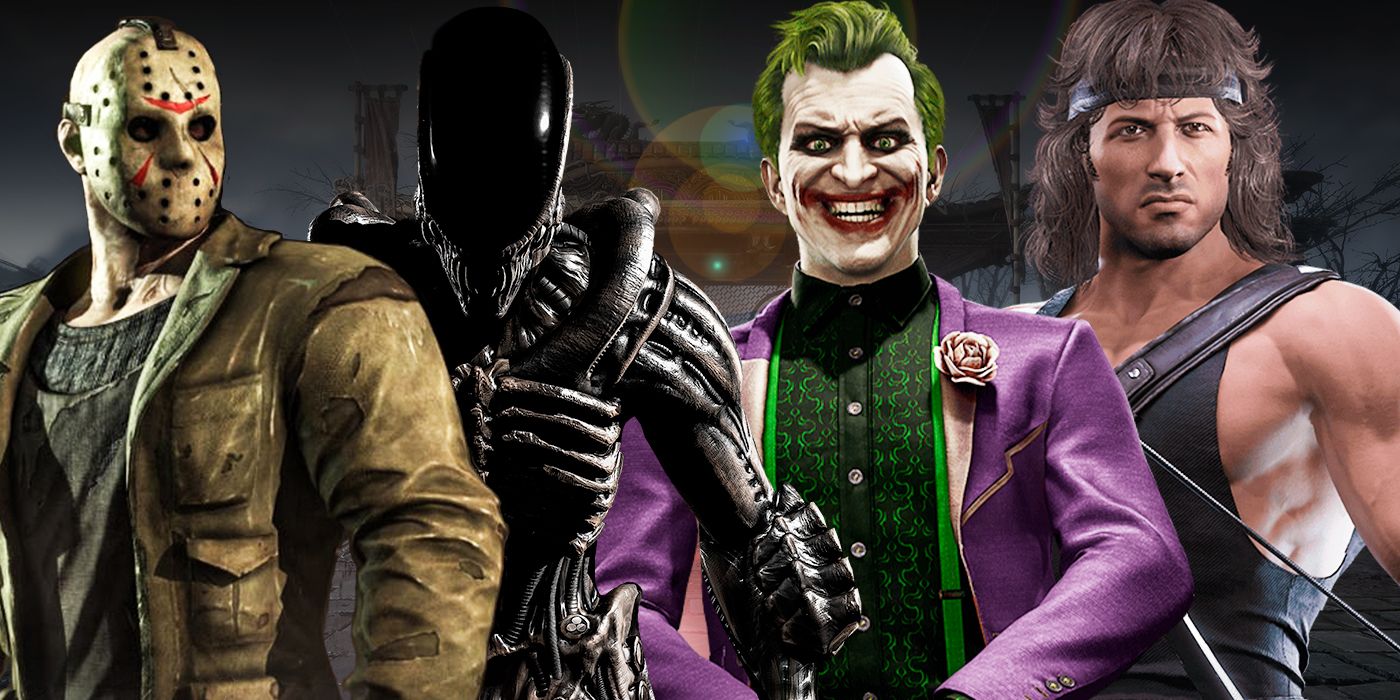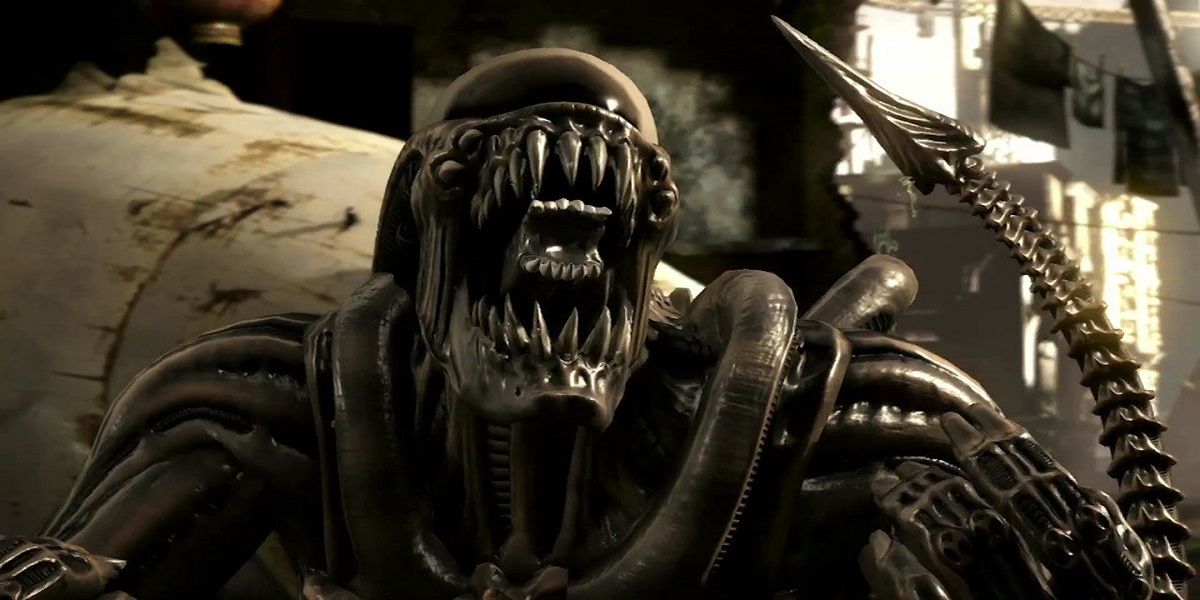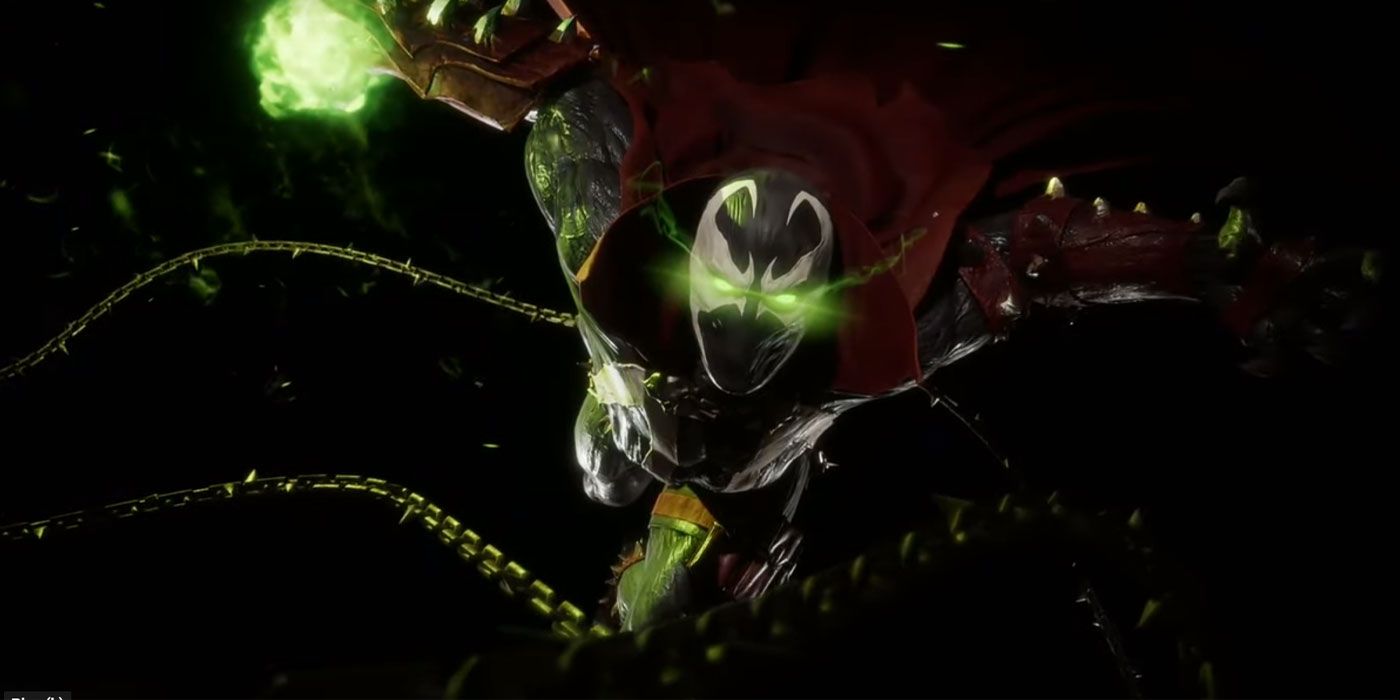The Mortal Kombat series has introduced a bewildering array of original characters, and while some have been better received than others, it's safe to say that NetherRealm Studios doesn't lack when it comes to creativity. That said, even the biggest and best must keep things fresh, and the introduction of guest characters adds some spice to a franchise also looking to cash in on the popularity of established external properties. While it might seem easy to simply choose a popular name and shoehorn them into another universe, picking the right ones can be a tricky business.
The Mortal Kombat franchise has done so with varying degrees of success. Mortal Kombat 9 saw Kratos and Freddy Kreuger squaring up to the likes of Scorpion and Sub-Zero, while Mortal Kombat X played up to its darker tone by drawing its guest characters almost exclusively from the horror genre. Leatherface, Alien, Predator and Jason Vorhees were all added to the MKX roster, and while certainly great threats that played into the grimness of the game, they ultimately felt like a misstep rather than an inspired creative choice.
MKX's darker tone couldn't smooth over the inevitable clash that ensued. Because these characters are essentially drawn from an entirely different genre altogether, there's a significant amount of dissonance when they come up against the game's own characters. Mortal Kombat might be a gory, sometimes darkly comic franchise, but it's never taken itself overly seriously; it's a gratuitously violent pantomime-cum-soap opera rather than a genuinely spooky horror game. Introducing icons of dread felt strange and clunky, and with the possible exception of Predator, the likes of Jason Vorhees and Leatherface only resulted in a strange tonal disharmony.
Crucially, none of these characters is an actual fighter. Predator and the Xenomorph are alien species designed to hunt and kill, whereas Jason and Leatherface, while admittedly burly and often seemingly unstoppable, are deranged psychopaths rather than the sorts one would expect to see training at the local dojo. Worse still, each character is famously mute, meaning that pre-match dialogue -- an area in which MKX really evolved the franchise -- is rendered short and barren as a result. Johnny Cage's repulsed reaction to Leatherface's grisly visage is funny, but there's not much these ringers can do except hiss menacingly or else furiously rev their chainsaw.
Things were starkly different by the time Mortal Kombat 11 started releasing its own DLC. Mortal Kombat 11 's narrative is far more of a shiny, action-inspired blockbuster than its predecessor, and nowhere is this tonal difference more apparent than in the acclaimed title's guest characters. Out went the horror icons of old to be replaced by some of the cinema's most recognizable and beloved action stars: the Terminator, Robocop and Rambo all made their way to Earthrealm, accompanied by The Joker and Keith David's excellent interpretation of Spawn.
In the context of Mortal Kombat, these characters make much more sense. Every protagonist is actually trained in some form of "kombat," many boasting the sort of enhancements or abilities that feel at home in a world of necromancers, Elder gods and despotic Khans. Series creators Ed Boon and John Tobias clearly took a lot from the action movies of the '80s, so it's great to see these figures come full circle to duke it out with those creations they helped inspire. Jax and Kano are both cybernetically enhanced in a similar vein to Robocop, Scorpion is essentially a hells-pawned specter like Spawn himself, while most of Johnny Cage's films are inspired by '80s B-movies. Everything fits together much more neatly.
Best of all, every character receives their own bespoke dialogue. While MKX might have struggled to bridge the gap between two slightly dissonant worlds, MK11's new additions slot in seamlessly, massively aided by the fact that (Terminator aside) most of them are voiced by their original actors. Hearing Peter Weller's iconic "Dead or alive you are coming with me" or seeing Sylvester Stallone roar out his victory pose is the sort of authentic fan service at which the franchise is becoming adept.
These are, it's worth noting, issues of style rather than actual substance. Many of the guests in MKX play very well, Jason especially boasting a brutal combat type that allows players to build effective combos, while the Xenomorph can utilize a range of different abilities and classes to accommodate most playstyles. For characters to feel balanced and effective should be a given, however. When introducing new and exciting properties, these guest stars should offer something extrinsic to their mere gameplay. Mortal Kombat 11's guests feel as natural to the series as Raiden or Liu Kang, while MKX's sadly feel as though they belong in a different realm altogether.



